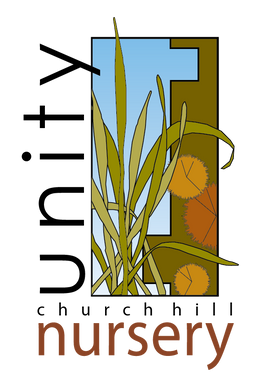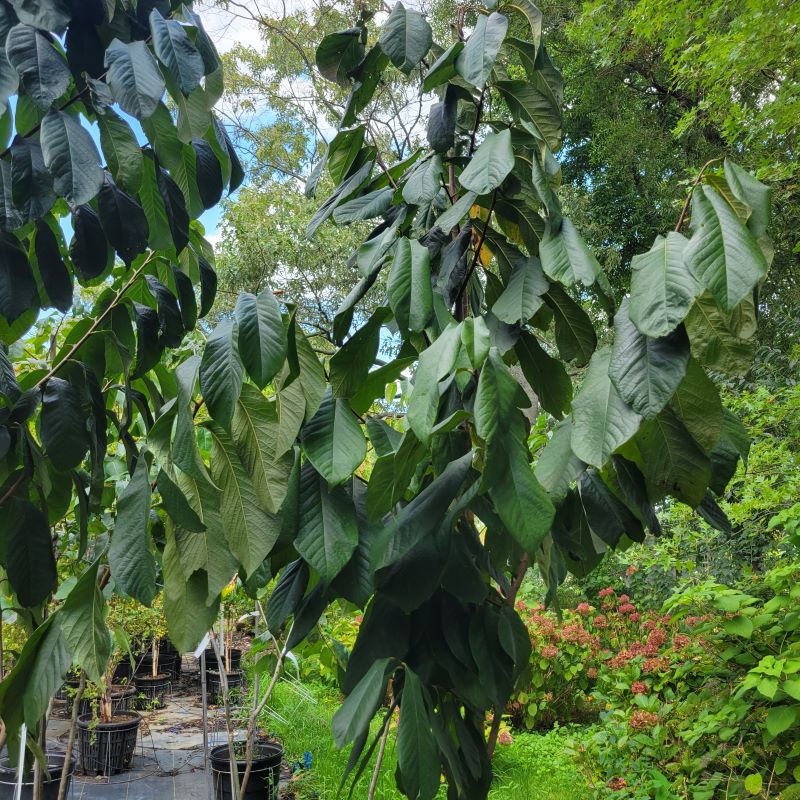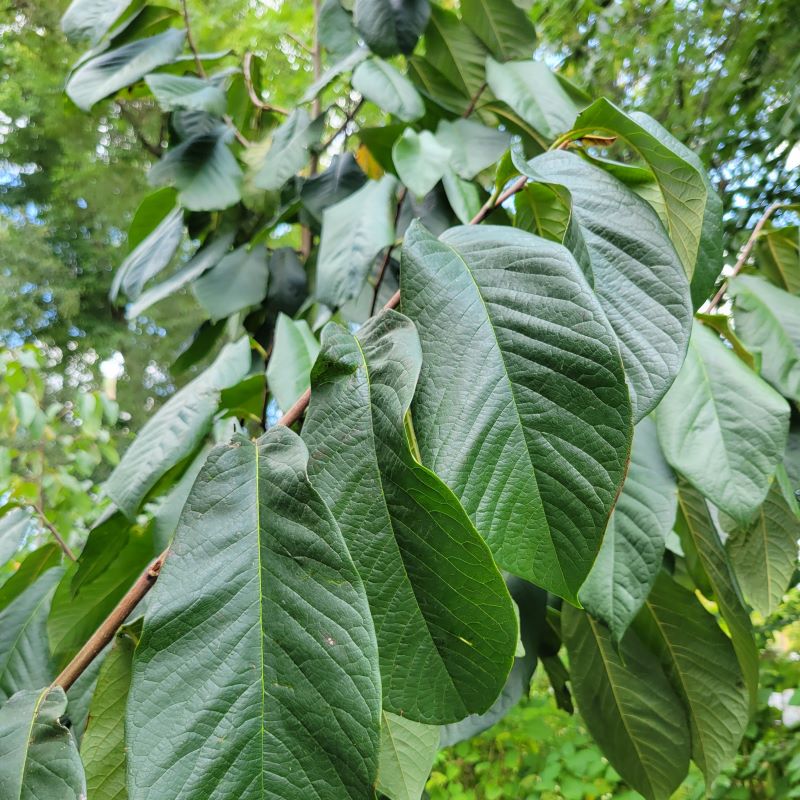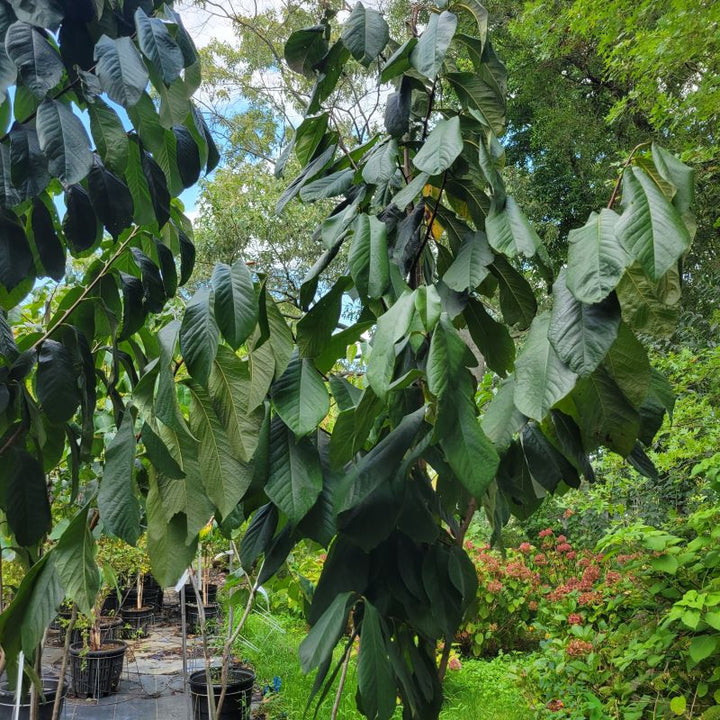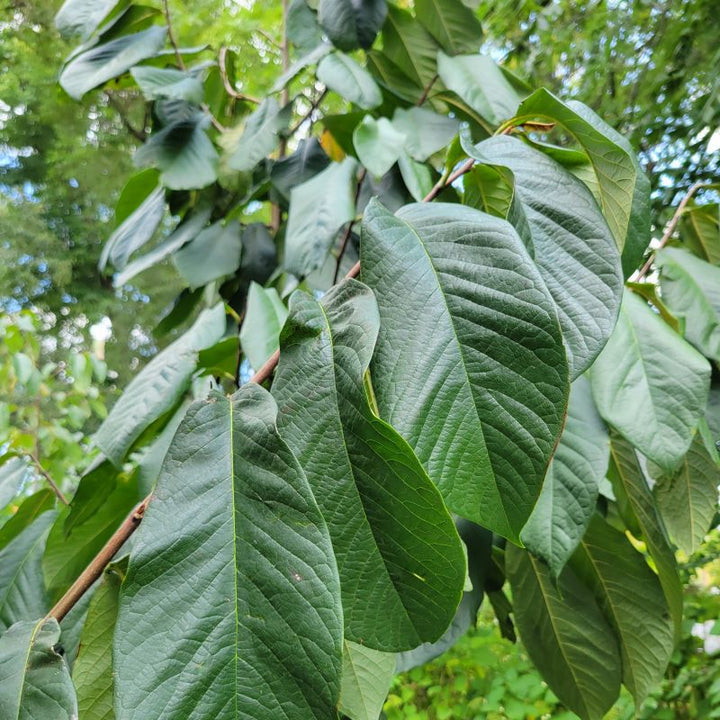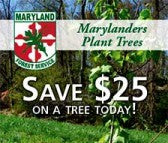Asimina triloba (Pawpaw)
- In Stock
- Inventory on the way
Asimina triloba, most commonly known as pawpaw (also spelled paw paw or papaw), is a small, understory tree native to much of Eastern North America, as far west as Texas and as far north as New York. Perhaps best known for its edible fruits, pawpaw produces small, three-lobed maroon-brown flowers in the spring which slowly turn to 2-6" long green, oblong fruits over the course of the summer. Once ripe, pawpaw fruits will naturally fall from the trees, and can be collected or foraged, and then eaten. Typically consumed raw, pawpaw fruits have a soft, custardy texture and a taste reminiscent of banana or mango; as part of the custard apple family (Annonaceae), pawpaws are closely related to a variety of neo-tropical fruits like the custard apple and soursop.
Pawpaw trees typically grow to about 15-30' tall and wide, and have a fibrous, colonial root system, that produces suckering new growth once established. Trees produce a dense canopy of broad, glossy-green leaves up to 6-12" long that turn a brilliant golden yellow color in the fall. Typically found wild in naturalized woodland and riparian areas, Asimina triloba prefers medium-wet well-draining soils with some acidity, such as sandy riverbanks and woodland slopes; pawpaw trees perform best in partial or full shade and are resistant to deer damage and soils contaminated by black walnut. Pawpaws have a fascinating history in terms of their relationship to extinct, prehistoric animals like the giant ground sloth, but in terms of modern fauna, pawpaw trees are an important insect host plant for the beautiful zebra swallowtail butterfly (Eurytides marcellus), whose caterpillars grow on and consume pawpaw leaves. In addition, fallen pawpaw fruits are eaten by a variety of forest animals like ground birds and a variety of different mammals.
Note: To produce fruit, pawpaws require a pollinating partner, so it is recommended to plant at least two trees on the same property.
